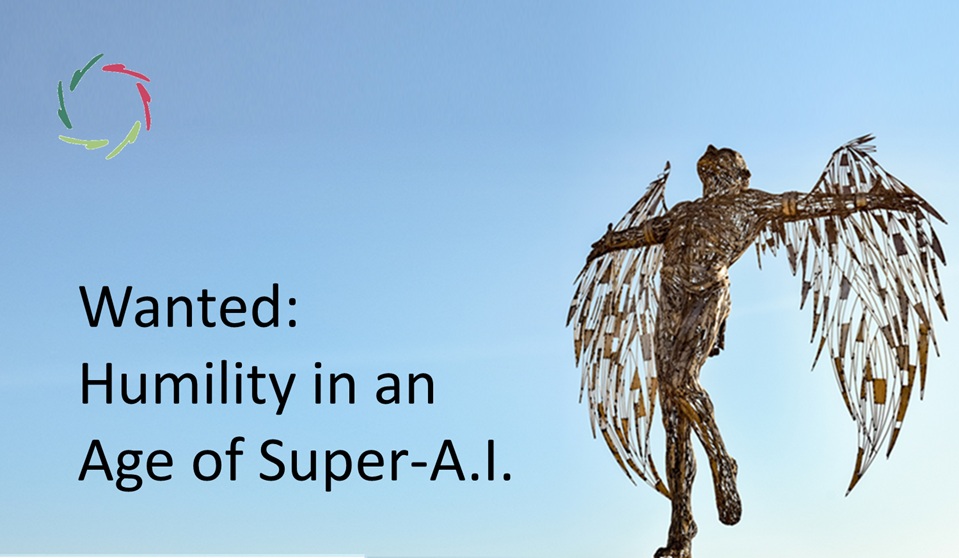Constructionism – Constructor – Construct

If there is a constructed reality, something or someone must be constructing this reality. This is not different for any socially constructed reality ― say, any culture or subculture in its distinctiveness from others.
In philosophical (radical) constructionism, everything can be a construction, while social constructionism is just mind-related (sub)culture-sceptic. The former may lead to ideas about ultimate reality. This text is about the latter. In search of non-constructed – that is, ‘fundamental’ – reality, the social constructionist doesn’t readily abide by any culturally constructed reality.
A construct can, for instance, be a voodoo deity or a Western placebo.
If there is a construct, there is a constructor.
While the construct exists in constructed reality, the constructor must exist in more fundamental reality. To Descartes [I think; therefore, I am], this would mean existence in the ‘real reality’ of the thinker. Of course, the thinker might be a thought of another thinker. Likewise, I can think/dream of another thinker thinking about his constructed reality. I might even dream of Descartes.
Anyway, the constructor of a construct operates at a more fundamental level than his constructs. In relation to his constructed reality, he lives in fundamental reality. Therefore, we need to look at the constructor in search of fundamental reality ― although not in a one-on-one relation between construct and constructing element (see below).
Of course, the constructor may also get influenced by the constructs and even by his own act of construction. This is very much the case in humans, but it doesn’t make the constructor less fundamental. It brings one more element to take care of. Namely, social constructivism is about how people learn to adapt to social constructs and how they mutually participate in the act of construction while doing so.
Meanings and symbols
Another way to look at this – an entrance to another world – is through the difference between surface-level and deeper meaning. The former is construct-related, while the latter is fundament-related. Constructs are not fundamentally and profoundly meaningful by themselves.
Profound meaning forms the level of deep purpose, in which one can see an interplay between symbol, symbolized, and symbolizer ― parallel to the present text.
The human brain is a genuine constructionist.
Or, one can say, it is the constructor himself. Any mind-construct has some meaningful correlation with this constructor.
The brain shows several levels of neuroplasticity. This has the advantage of huge flexibility (‘fluidity’) and adaptability such as to different cultures. This adaptability – and several profound implications concerning knowledge, communication, and culture-dependency – is investigated in social constructionism.
Leading to brain-fundamental-reality
This reality doesn’t preclude social constructionism. It rather proves it while also showing the fundamental reality behind it. Social constructionism is not boundless. We are continually subject to features of subconceptual processing. This is interesting in order to know how the human being is constructed (by nature) and, in healthcare, what can make us ill and healthy again from the mind perspective.
I started the AURELIS project in the nineties based on such insights.
The Open therapist
is Open to this, following the adagio that “Only truth can truly cure.” So, he doesn’t easily use constructs, at least not the ones he sees through. Of course, in Compassion, he doesn’t coerce anyone. He strives for the dual Compassionate goal.
Even more, the constructionist viewpoint is needed to be truly Compassionate. This makes the Open therapist genuinely open to his own fundamental reality ― himself, as authentically as possible. Eventually, this is also what lies at the basis of his effectiveness as a healer ― in one word: Compassion.
Constructionism is relevant to many other fields ― many questions, many answers being needed. For instance:
If people are flexible, they can get influenced by all kinds of constructs, including A.I. This poses a new set of ethical problems:
- To what degree can we abide by such influence?
- How much do we need – and are we able – to protect ourselves against this?
- How do we protect ourselves against manipulation through A.I. means being used by our fellow specionauts ― especially those who don’t care about any ethics?
In my view, A.I. makes constructionist ideas more relevant than anything else.


